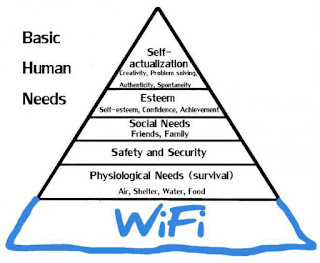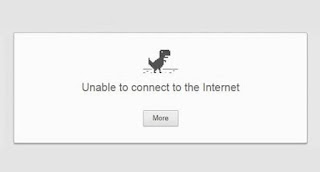According to Wikipedia the right to Internet access, also known as the right to broadband, is the view that all people must be able to access the Internet in order to exercise and enjoy their rights to Freedom of expression and opinion and other fundamental human rights, that states have a responsibility to ensure that Internet access is broadly available and that states may not unreasonably restrict an individual's access to the Internet.
In June the United Nations Human Rights Council passed a non-binding resolution that condemns countries that intentionally blocks citizen's internet access. The resolution met some oppositions from countries like Russia, China, India, Saudi Arabia and South Africa (Come on SA, Even You too?).The resolution on “the promotion, protection and enjoyment of human rights on the Internet” (A/HRC/32/L.20) is the joint initiative of Brazil, Nigeria (Yay! Proudly Naija), Sweden, Tunisia, Turkey, and the United States of America. Good thing more than 70 nations supported the resolutions as cosponsors
See Also: Iraq Shuts Down Internet to Stop Cheating During Exams
Thomas Hughes, the executive director of Article 19- a British organization that works to promote freedom of speech and information, in a statement wrote:
The resolution is a much-needed response to increased pressure on freedom of expression online in all parts of the world. From impunity for the killings of bloggers to laws criminalizing legitimate dissent on social media, basic human rights principles are being disregarded to impose greater controls over the information we see and share online.
It’s very necessary to increase access to the internet, affords different sources for training, especially throughout the digital divide.
The resolution addressed a number of issues chief of which is freedom of expression on the internet.
Highlights include:
- Calling upon all states to address security concerns in “a way that ensures freedom and security on the Internet,”
- Ensuring accountability for all human rights violations and abuses committed against persons for exercising their human rights,
- Recognizing that privacy online is important,
- Stressing the importance of education for women and girls in relevant technology fields.
Download the adopted resolutions here
The is a push in the right direction, although the resolution is not binding as the UN can’t enforce resolutions legally. They only provide guidelines for participating nations and to put pressure on the others who may have different views. it is now left for countries to start actively addressing issues, legal guidelines concerning freedom of expression and ways these rights may be abused to unfold violence, terrorist ideals, and harassment.
See Also: Proposed Communication Service Tax (CST) Bill Will Threaten Internet Usage in Nigeria
PS- I also want the internet to be free also. I love what Zuckerberg is doing with the internet.org by facebook initiative and free basics, making the internet accessible to more people by providing them access to a range of free basic services like news, maternal health, travel, local jobs, sports, communication, and local government information.










Post a Comment Blogger Facebook